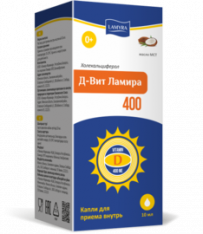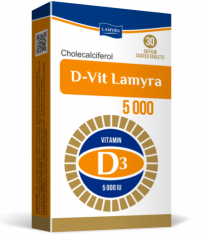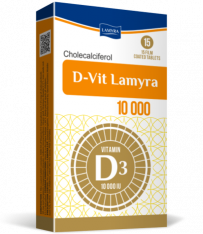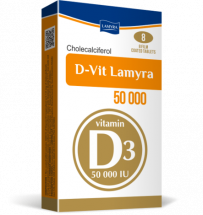International name is Vitamin D, antirachitic vitamin, ergocalciferol, cholecalcefirol, viosterol, solar vitamin. Chemical name — ergocalciferol (vitamin D2) or cholecalciferol (vitamin D3), 1,25 (OH) 2D (1alpha, 25-dihydroxyvitamin D)
Vitamin D is a fat-soluble substance necessary for the mineral balance in the body. There are some important and the most studied forms of Vitamin D , this is cholecalciferol (vitamin D3 which is synthesized by the skin under the influence of ultraviolet rays) and ergocalciferol (vitamin D2 which is contained in some products).





